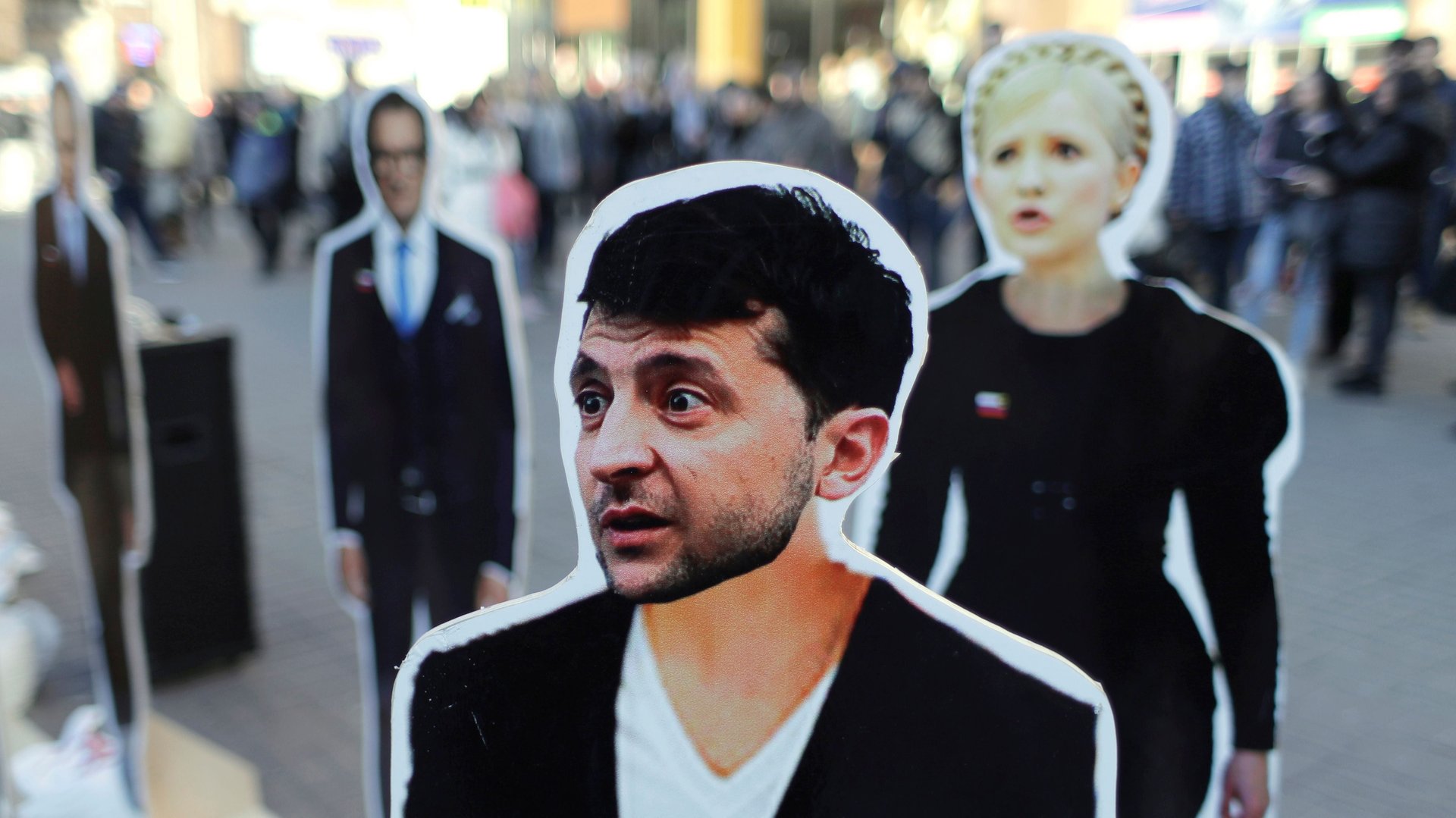A comedian who played the president on TV could become Ukraine’s actual president
In the hit 2015 Ukrainian TV drama Servant of the People, comedian Volodymyr Zelensky plays a high school history teacher who is propelled to fame, and eventually the presidency, when one of his students covertly films him ranting against corruption.


In the hit 2015 Ukrainian TV drama Servant of the People, comedian Volodymyr Zelensky plays a high school history teacher who is propelled to fame, and eventually the presidency, when one of his students covertly films him ranting against corruption.
In real life, Zelensky is leading the polls as an anti-corruption candidate for the Servant of the People party in Ukraine’s March 31 presidential election, lending credence to Mark Twain’s belief that truth really is stranger than fiction.
Ukrainians have their pick of 44 candidates, but the three frontrunners are Zelensky; current president Petro Poroshenko; and former prime minister Yulia Tymoshenko. A poll conducted in February by Ukrainian polling group Rating put Zelensky’s support among voters at around 25%. Poroshenko came in second with about 16.6%, closely tied with Tymoshenko’s 16.2%. According to the same poll, 85% of respondents indicated they would definitely or likely vote in the elections, up from 76% in December.
If there is no clear majority in the first round, two candidates will advance to a runoff election on April 21.
The election marks the first time Ukrainians will get to choose since president Viktor Yanukovych was ousted and replaced by Poroshenko in 2014, and Russia’s subsequent annexation of Crimea. And if Zelensky’s apparent success is anything to go by, they are hungry for change. Trust in Ukrainian institutions is at a historic low. Poroshenko’s administration has been plagued by corruption scandals, with over half of Ukrainians who intend to participate in the elections saying they would not vote for him in any situation, according to another Rating poll. Meanwhile, the economy hasn’t fully recovered from getting to the brink of economic collapse (paywall) almost five years ago.
In this context, it almost makes sense that a complete outsider to the political system, one who has banked on name recognition and a reputation as a straight shooter, would do so well. In recent years, Donald Trump’s election in the US, Emmanuel Macron’s rapid rise to become France’s youngest president, and the electoral success of comedian Beppe Grillo’s Five Star Movement in Italy show that it is a good time for outsiders (paywall) in politics.
Analysts say Zelensky lacks a coherent platform and has few fleshed-out political views. He’s proposed stripping the president, lawmakers, and judges of their political immunity and setting up an independent anti-corruption tribunal. He supports holding referendums to see if Ukraine should join NATO and the EU. He recently asked his close to 3 million Instagram followers who he should choose as his vice-president and cabinet members if he was elected. And he told Reuters that he believed Ukraine should honor its debt commitments to the International Monetary Fund.
“His non-program is only slightly more bizarre than the programs of other presidential contenders,” say Tatyana Malyarenko of National University Odesa Law Academy and Stefan Wolff of the University of Birmingham. “Each offers little, if anything, by way of credible strategies for economic development, public governance, a permanent end to the war in the eastern Donbas region, or for dealing with Russia’s annexation of Crimea.”
But things may yet change for Zelensky, who faces questions of his own over his relationship with billionaire Ihor Kolomoisky, a Poroshenko-rival who owns the TV channel that hosts Servant of the People. As Aivaras Abromavicius, Ukraine’s former minister of economy and trade, told RadioFreeEurope, “Zelensky’s strongly in the lead now, but Poroshenko and Tymoshenko are fighters. They’re very experienced…and Ukraine is a country of comebacks.”